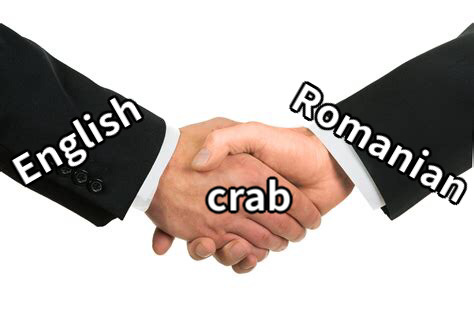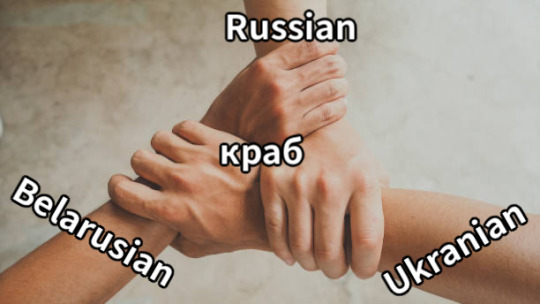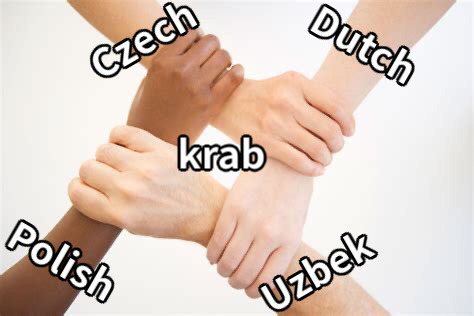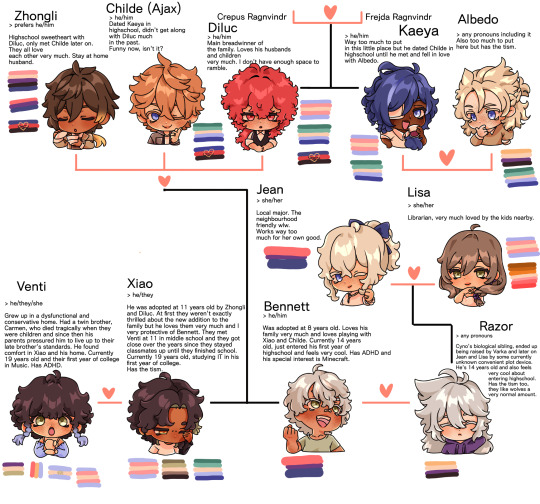#romanian > english
Explore tagged Tumblr posts
Text
Toți dispăreau cu o sută douăzeci la oră
Și vara aceea tot așa s-a dus
Îmi explicai care sunt norii
Norii de vânt, de ploi
Și norii cumulus
Spuneai uită-te la mine
Spuneai și, uită-te, eu m-am uitat
Cu ochii în tavan mi-aduc aminte
Nu mai știu tot din vara aceea dar
Știu norii, știu la perfecțiune
Dac-o să plouă, dacă nu
Sau dacă-i vară iar
Spuneai cum te-ai uitat
Uitându-te la noi
Spuneai că te-ai uitat
Te uiți atât de bine-n amândoi
Uită-te dar să nu uiți
Uită-te
TRANSLATION
They were all fading from view at 120km/h
And that summer went away just as quickly
You were explaining to me which clouds were which
The wind clouds, the rain clouds
And the cumulus clouds
You were saying look at me
You were saying this, and, look, I forgot myself
With my eyes fixed on the ceiling I reminisce
I don't remember everything from that summer
I know the clouds, I know them perfectly
If it's gonna rain or not
Or if it's summer again
You were saying how you forgot yourself
Looking at us
You were saying that you looked
You forget yourself so well in the two of us
Look but don't forget
Look
TRANSLATION NOTES
This is heavily adapted because the lyrics are huge on wordplay. I will try to explain my thought process line by line
1: lit: they were all disappearing with 120 per hour
2: lit: and that summer went away the same (poetic license: adding "just as quickly" for clarity)
3: you were explaining to me which were the clouds (but the obvious sense is that she was explaining the types of clouds, hence "which is which")
4: the wind clouds, the ones of the rains (for clarity: rain clouds)
Chorus:
Very important note! The main wordplay is on the verb "a se uita" which is a reflexive verb, but its so common in everyday use it rarely gets perceived as one. The most common meaning is to look. Its like a phrasal verb, if you will. However, if you take the individual words of the phrasal verb literally, you get the meaning of to forget oneself. "A uita" = to forget, "a se uita" = to look (in a phrasal verb sense), but if you take it literally, to forget oneself.
So literally:
You were saying look at me
You were saying, and, look, I looked
But it certainly has the double meaning of
You said this, and I forgot myself
In the "I lost myself in you" sense of forgetting
Verse 2
1: lit: with eyes in the ceiling I remind myself
2: I don't know anymore everything from that summer. "To not know anymore" is a common way of expressing "to forget" or "to not remember" in Romanian
3: I know the clouds, I know to perfection
4: if its gonna rain, if not
Chorus 2
The same pun but even more double meaning
You were saying how you looked
Looking at us
<- but that doesn't make sense so ofc the first one has the other meaning. Hence, you were saying how you forgot yourself, looking at us
You were saying that you looked
You look so well into the both of us
VS
You were saying you forgot yourself
You forget yourself so much in the both of us
VS
You were saying that you looked
You forget yourself so well into the both of us
VS
(The one I went with)
You were saying you forgot yourself
You look so well into the two of us
But honestly the ambiguity makes it such that all 4 are plausible enough interpretations.
End verse
Look but don't forget
Look
Or!
Look but don't forget
Forget yourself
4 notes
·
View notes
Text

Wool & lana
The word lana (wool) in languages such as Spanish is etymologically related to English wool. For words to be related, they don't have to look like each other. Instead, you have to be able to trace them back to the same ancestor through regular sound changes - and that's what linguists managed to do with wool and lana. The infographic shows the Germanic and Romance family trees of these words.
#historical linguistics#linguistics#language#etymology#english#latin#french#dutch#german#spanish#proto-indo-european#proto-italic#proto-germanic#gothic#norwegian#swedish#old norse#danish#icelandic#catalan#portuguese#italian#romanian#low saxon#frisian#lingblr
666 notes
·
View notes
Text


“... and I almost wish that we would have explored more because there's that whole situation where Bucky is having memory lapses, some of his old memories coming back. I thought it would have been interesting to go, you know, what it would have been like for him to wake up after that fall and missing the one arm, doesn't know where he is.”

#nobody loves bucky more than me#except the romanian man but whatever#he's just. god i just know he had many plans for bucky#and there was time but not enough interest from the mcu you know#which is sad because bucky is one of the most beloved in that franchise#and i am not saying that because i love him but it's a fact#sorry for my little rant and bad fucking english#sebastian stan#bucky barnes#marvel#sebastianstanedit#sebstanedit#fysebastianstan#sstanedit#stansclan#gbbb
562 notes
·
View notes
Text
im curious to know how airtight music in a foreign language is to the majority of people.
please reblog this for sample size and include where youre from if you feel comfortable!
2K notes
·
View notes
Text
You know what I need? I need Batman to be minding his own business, y'know just taking part in a league meeting or being forced to (urgh) socialize. And just in the corner of his eye see one of the batkids start doing something they know they shouldn't, presumably something incredibly dangerous seeing as he gave up on stopping them from hanging from chandeliers and going out as vigilante children. .
And I need him to just suddenly having the thickest new jersey accent the other heroes have ever heard as he fusses over them when they do get hurt.
#batman#dc#bruce wayne#dcu#robin#batkids#batdad#we need to use the fact that gotham is in new jersey more#batfamily#let characters have their local accents dangit#but also let them use it for shenanigans#Dick purposely gets a thick romanian accent whenever someone is being an ass while he's civilian and pretends he doesn't speak english#even though everyone knows he can and has seen proof of it#Also let Bruce get a british accent when he scolds someone thanks to being raised by Alfred#Do you see my vision#do you#batman au#or is it headcanon
297 notes
·
View notes
Text

#been a while since I’ve produced low effort content for this fandom. but I’m like a cockroach and refuse to die.#resident evil village#karl heisenberg#what is he bilingual in? probably English and Romanian? maybe German? Klingon? we may never know
68 notes
·
View notes
Text
You are welcome to write them down or tag them too :) 🎧
(it's totally okay to add more languages first before voting 😂)
#English#Japanese#Korean#French#Spanish#German#Dutch#Romanian#Breton#Chinese#Vietnamese#Greek#Thai#Ukrainian#Danish#Turkish#Hindu#Norwegian#Finnish
371 notes
·
View notes
Text
I HAVE MADE A DISCOVERY 🦀



#crab#krab#краб#english#romanian#română#russian#русский#belarusian#ukranian#czech#čeština#polish#polski#uzbek#apologies if any of this is incorrect &/or this isn’t the most common word for crab in your language#but so many languages seem to share this word & it makes me happy!#there’s also some languages with krabbe or krabo & other variants but i didn’t want to be editing memes all night#ford speaks#meme#funny
332 notes
·
View notes
Text

spent my silly little day making this about my silly little modern au i've spoken about once like a year ago
#i am very divided whenever i should make albedo trans or not#i also forgot to mention razor is albino#they live in an unmentioned country#which resembles romania but they speak english ig#also venti is romanian german#venti also known as valentin(a) barna#albedo too#i've been thinking about this au for like a week#enjoy my brain vomit#genshin impact#genshin impact au#modern au#zhongchiluc#zhongchi#chiluc#zhongluc#kaebedo#xiaoven#rannett#jeanlisa#zhongli met childe thru diluc btw idk if it's mentioned#i could write a novel about this au
497 notes
·
View notes
Text
Signalis, Authority, and History
There's a level of nuance to how Signalis presents the violence of the authority of the nation that doesn't call attention to itself but which I really appreciate. Which is basically just, all the officers and cops and spies who make life hell for people like the Gestalt mine workers, Ariane, and the Itou family--we get little glimpses into who they are in Adler and Kolibri's diaries and despite the propaganda and the authoritative tone they take in official communications, for the most part they don't seem to actually be particularly invested in the hard line of national ideology. They uphold it though, viciously, both because things were worse under imperial rule (we don't get hard details on what it was like but it's mentioned in passing enough that I believe it) and because they're scared that if they don't they will be decommissioned and easily replaced. They are literally stamped out of a production line after all. There's a subtext of well, if I don't do it my replacement will anyway and I'm not trying to die so what's the point of rocking the boat?
I think Kolibri stands out to me most clearly on this because in communications from the block warden regarding Ariane there is emphasis put on how it is unacceptable and suspicious that she should be so interested and invested in art and literature that does not serve the purpose of furthering the goals of the nation. But we know that Kolibris themselves are bookworms, Adlers are fiends for stimulating experiences, and both get miserable FAST when deprived of art and puzzles and entertainment and hobbies. Y'know, just like anyone. Far be it from being a paragon of The Nation only interested in productive labor, we are reminded that the block warden, too, hates this shitty town and wants to transfer but is denied. They're hypocrites, but not monsters, nor brainwashed puppets of the state.
The monstrousness at play is not contained within any particular subset of evil individuals, or even an inherent universal force of evil contained in the broad notion of The Nation. There is no cosmic evil force that makes them all do these things to each other. The monstrousness is within the social systems, the mechanisms of how authority perpetuates on a structural procedural level, held in place by fear and tangible threats of violence, each link in the chain restraining the next through those threats out of fear that if they don't, then they'll be next. Regardless how many, if any, of those people in this chain are true dogmatic hardliners, they must act as such because failing to do so opens them up to danger.
Here then I think of the quote that is so prominent, "Great holes secretly are digged where earth’s pores ought to suffice, and things have learnt to walk that ought to crawl", from Lovecraft's The Festival. This is not just a chilling abstract visual that conveniently evokes a mineshaft-- in Lovecraft's story, this line refers to worms which ate the decomposing bodies of wizards whose wretched souls had remained after death, complete with the terrible powers they gained through contracts with demons. Those worms inherited both their power, and also the evil. The Nation, despite having overthrown the Empire, is built on imperial technology, in particular Replikas and bioresonance. So too, then, we can imply that The Nation inherited with those things some of the monstrousness of The Empire as well. There is no end of history, nor clean break with the past, no matter how violently it may seem to be rejected. That which remains from the past--and something inevitably always does--creates the present.
This is a game that is not shy about evoking East Germany. And I think all of this provides a sophisticated picture of repressive authority that we rarely see in fiction of the English speaking world, especially in games. The year the S23 incident takes place is notably 84, but, frankly, I find this to be more compelling and illustrative than 1984 (and I'm a librarian and have taught English classes so I get to say that). Orwell, let's be honest, presents a fairly one dimensional picture of authority, where people seize power and wield it against others out of seeming mustache twirling evil or malice.
Here though we get a more humanistic view. Authority did not come from nowhere and is not wielded arbitrarily out of gleeful cruelty or mindless brainwashed allegiance. People aren't "just following orders". Individuals have rich inner lives. They make decisions, and those decisions are based in the context they're in. Even the decision to carry repressive tools of the past into the present is a decision that was made strategically with the big picture in mind. Nobody woke up and decided to be evil that day. Everyone operates on self interest, and, we must assume, an earnest desire for things to get better. Even the [spoiler] program which served as an inspirational demonstration of The Nation's power, you can imagine the chain of officers and bureaucrats who genuinely wanted the people of the nation to believe in the future, to confidently trust that everyone was working together towards something great and beautiful. And, through a long chain of those people who couldn't say "No" without being decommissioned, we ended up with something unbelievably cruel.
We get to know Adler and Kolibri and the other officers not to say well they're human too, maybe it wasn't so bad that they condemned all those people to agonizing suffering, but to remember that if we keep looking for true monsters we will not find them. There are no monsters and there are no demons. There are only people making decisions. A better world is possible. A better world, where Adler is just a paper pusher who does puzzles after work instead of signing papers to authorize torture, where Kolibris are librarians instead of spies and cops, where EULEs can gossip and play piano and ARARs can do maintenance on facilities that don't contain torture rooms, is one that would not have led to the Ariane and Elster's tragic cycle and ultimate end.
Authority and its attendant cruelty is not contained, radiating forth from The Great Revolutionary and Her Daughter, it is within the social systems of control. When those two women die, that cruelty will continue so long as those social systems continue. Like Lovecraft's worms, no matter how long dead the evil of the past is, so long as it continues to be fed upon, that evil will not only remain, but evolve into something new in the present. A better world can't be achieved through the death of the old world alone, even if violent overthrow is warranted. There is no end of history. There is no clean break from the past.
"Men make their own history, but they do not make it as they please; they do not make it under self-selected circumstances, but under circumstances existing already, given and transmitted from the past. The tradition of all dead generations weighs like a nightmare on the brains of the living."
Karl Marx, The Eighteenth Brumaire of Louis Bonaparte
#Signalis#Didn't include everything because this is already very long#But there's a lot to add to this kind of reading from other former Eastern Bloc states that go beyond a kind of braindead#Simplistic Authoritarianism bad communism bad freedom good type of view common in the English speaking world#That go more into well what is authority and how does it work and how has it remained durable and violent before during and after the cold#The Romanian movie Bad Luck Banging is very good for this in expressing how things have been more similar than different#Under monarchy fascism communism and liberal democracy over the last 150 years there#replika joker voice maybe the real monster is SOCIETY#op#quality content
122 notes
·
View notes
Text
ok but the anglerfish would've definitely got my ass because i'm chronically unobservant when it comes to faces and also believe in the natural cigarette cycle
#tma#the magnus archives#magpod#for those who don't know the natural cigarette cycle is the following:#everyone who smokes asks for cigarettes sometimes#everyone who smokes also gives cigarettes#not necessarily to the people the initially asked for one. but they give#and that's how cigarettes circulate#also 'circuitul țigărilor în natură' sounds way better than the english equivalent. another w for romanian
24 notes
·
View notes
Text
Tot ce-am vrut să-ţi spun odată
Intr-o scrisoare a-ncăput.
Era albă închisoare, c-un sfârşit şi-un început.
Rânduri rupte, puse-n foaie
Dungi de gheaţă peste tot.
Nu aveam un plic cu timbru
Mi-era frig şi i-am dat foc.
Vreau să ştiu ce te apasă.
Spune-mi tot, ori nu-ţi mai pasă
Ce-a mai rămas mă-ntreb în scuze.
Ce gând îţi tremură pe buze?
Scăparea-i noaptea-n nepăsare,
Am scris o albă închisoare
Am dat de frig, nebun sub piele
Am dat de plumb ascuns sub gene.
Oare nu-ţi mai pasă?.
Am cerşit la cer prea multe,
Mi-am dorit ce n-am avut.
Ce credeam că nu voi pierde,
Ieri, deja era pierdut.
Prea mult timp am stat sub uşă.
Mă temeam să trec de prag.
Am muţit văzând cum nordul
Suflă-n tine-n lung şi-n lat.
Vreau să ştiu ce te apasă.
Spune-mi tot, ori nu-ţi mai pasă?
Ce-a mai rămas mă-ntreb în scuze.
Ce gând îţi tremură pe buze?
Scăparea-i noaptea-n nepăsare,
Am scris o albă închisoare.
Am dat de frig, nebun sub piele.
Am dat de fum ascuns sub gene.
Oare nu-ţi mai pasă?.
Vreau să ştiu ce te apasă.
Spune-mi tot, ori nu-ţi mai pasă?
Ce-a mai rămas mă-ntreb în scuze.
Ce gând îţi tremură pe buze?
Scăparea-i noaptea-n nepăsare,
Am scris o albă închisoare.
Am dat de frig, nebun sub piele.
Am dat de fum ascuns sub gene.
Spune-mi, chiar nu-ţi mai pasă?
Spune-mi, chiar nu-ţi mai pasă??.
Spune-mi, chiar nu-ţi mai pasă?
Spune-mi, chiar nu-ţi mai pasă?
Spune-mi, chiar nu-ţi mai pasă?
_______
TRANSLATION
The White Prison
Everything I've ever wanted to tell you
Fit into one letter.
It was a white prison, with an ending and a beginning.
Torn lines, placed on the sheet
Icy stripes all over.
I didn't have an envelope with a stamp
I was cold and I had set it on fire.
Chorus:
I want to know what troubles you
Tell me everything, or do you not care anymore
What's left anymore, I ask myself in apologies
What thought trembles on your lips?
The only escape is the night, in carelessness,
I wrote a white prison.
I stumbled upon the cold, insane under my skin
I happened upon the lead hidden under eyelids.
Do you not care anymore?
I've begged too much from Heaven
I desired what I never had.
What I thought I'd never lose,
Yesterday, was already lost.
For too long I've lied under the door
I was afraid to go over the the frame.
I went mute as I saw the North
Howling inside you all over.
Chorus: x2
Tell me, do you really not care anymore? x3
#romanian > english#2023#song translation#alternosfera#this is hands down the best song on the album and also from this band ever#Spotify
1 note
·
View note
Text

Sí, oui, òc!
Italian sì, Spanish sí, Portuguese sim and many more Romance words for 'yes' come from Latin sīc, which meant 'so; thus; like that'. In Popular Latin it got an extra meaning: 'yes', born out of the sense 'like that', i.e. 'like you said'.
French oui has a completely different origin. It comes from Old French oïl, a univerbation of o il, literally 'yes, it (is/does/has etc.)'.
O stemmed from Latin hoc (this), which became òc (yes) in Occitan, a group of languages whose name was derived from this very word.
#historical linguistics#linguistics#language#etymology#english#latin#french#spanish#aromanian#romanian#franco-provençal#catalan#galician#portuguese#proto-indo-european#proto-italic#occitan#lingblr
383 notes
·
View notes
Text
I don’t know, maybe it’s because I’m Irish and used to seeing all sorts of haha jokes about how weird our names are etc but yet I’m always surprised how surprised people are when I say that I find Welsh a pretty easy language to get the gist of. It makes sense! Welsh is something I know very little of but yet I find it easy enough to parse out the pronunciation of. I don’t always know what things mean but I’m not usually that far off in how they should be said.
#Welsh looks intimidating because like irish it uses letters in ways english doesnt#had a nice welsh couple today tell me I pronounced their address decently well which they were surprised at#draft saved on the 26th of April#welsh#cymraeg#my own post#I haven’t done any Welsh learning for a good while now so I’m a bit rusty on what sounds some of the letters like ll and dd make#but with a small bit of refreshing I can get it again. still can’t physically say some of the more…curly noises#because my tongue won’t cooperate but I can make a stab at it. had the same issue with a couple of romanian words with sounds english#doesn’t have. so I found them really hard to attempt
106 notes
·
View notes
Text
fuck. languages are so beautiful
#random thoughts#i love you korean i love you serbian i love you french i love you.. all you languages#romanian and finnish and georgian and albanian and english. and every other language in the world#so pretty..
37 notes
·
View notes
Note
i'm curious now, what languages do you speak?
Ah, well, I can speak Romanian (since it’s my mother-tongue), English, German, learnt Scottish Gaelic as a hobby in college, and I’m currently studying Greek, for my mother was from Greece and I’d love to feel more connected to her.
Odd list, I know, but I think it’s helpful knowing some foreign languages, no matter how random.
#ooc tags >#i [scarlett] can speak romanian#english and i’ve been learning german for#about 4 years now#i know some scottish gaelic#but i am FAR from fluency#house md oc#house md roleplay#house md rp#🌌 anastasia
7 notes
·
View notes